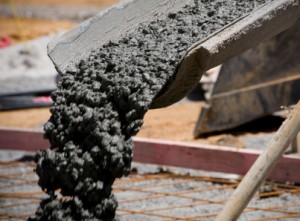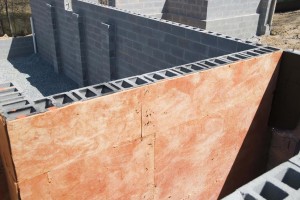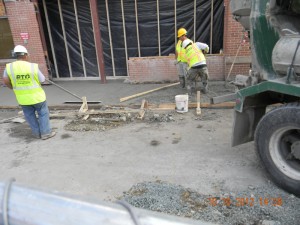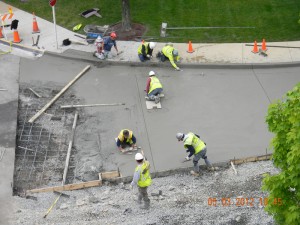 Before Jack Frost starts nipping at your nose or worse, your concrete, it is important to prepare your pavement for what’s ahead. For many business owners, this means Concrete Sealer, a compound used to protect your concrete from the elements, as well as the damaging effects of most de-icing chemicals. However, there are certain situations where preventive maintenance just isn’t enough. What happens when you need to completely repave a section of concrete?
Before Jack Frost starts nipping at your nose or worse, your concrete, it is important to prepare your pavement for what’s ahead. For many business owners, this means Concrete Sealer, a compound used to protect your concrete from the elements, as well as the damaging effects of most de-icing chemicals. However, there are certain situations where preventive maintenance just isn’t enough. What happens when you need to completely repave a section of concrete?
Cold Weather Concrete Paving Tips
Despite what you may have heard, concrete CAN be placed, finished, and cured in cold weather…even in the winter. However, cold weather paving requires an experienced, professional concrete contractor who knows the ins and outs of winter paving and the impact cold weather has on the curing process.
- Fresh, newly hardened concrete rapidly loses moisture and heat in cold-weather conditions. To combat this, your contractor must protect the concrete against early freezing to ensure future durability.
- Cold weather concrete paving requires special planning.
Planning Cold Weather Concrete Paving
- Ensure you have the proper equipment and right amount of workers in place well ahead of time. When it comes to cold weather concrete paving, you do not have time to sit and wait for people or equipment to show up. Time is of the essence.
- Weather protection is a must to ensure the area remains at an adequate temperature.
- Consider the use of low slump concrete for flatwork in cold weather. This will cut the set time and reduce bleed water.
- Consider using concrete mixtures that accelerating admixtures or Type III Hi-Early cement that requires shorter protection time from freezing.
- Only use concrete mixtures containing fly if your concrete will be able to be protected from freezing for a LONG period of time.
- To help develop early strength, use a heated mix or use 100 lbs. of extra cement for each cubic yard of concrete.
- Call PTG Enterprises!
Baltimore Concrete Contractor
PTG Enterprises is a commercial concrete contractor in the Baltimore area. Our crews are extremely familiar with all types of concrete paving, so you know the job will look professional and last for years to come. Give us a call and let us help protect your pavement from Mother Nature.
If you have any questions about Cold Weather Concrete Paving, please contact PTG Enterprises today by calling 410-636-8777, or click here today! You can also check us out on Facebook and Twitter.

























